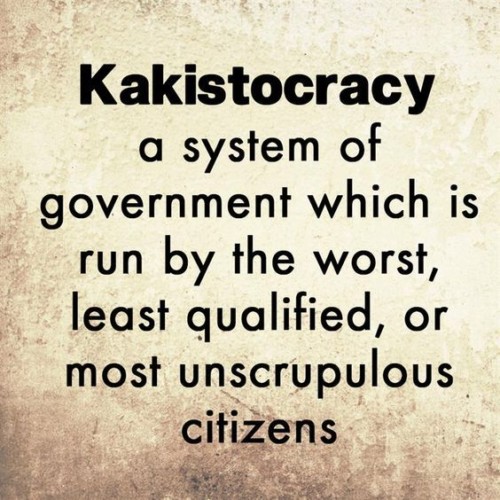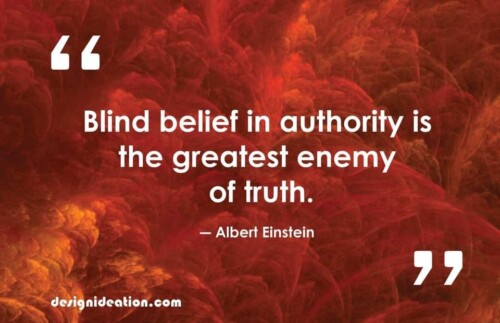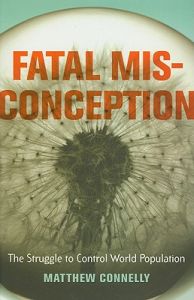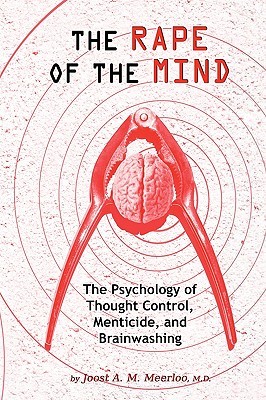«It should be, technically, quite simple to administer any group or nation—or even the whole world. Mankind certainly knows enough to do this job. We know a great deal about history, sociology, and the science of human relations and government, at least enough not to repeat the mistakes from history. We live in a world of technical and economic abundance.
But we have not yet learned to apply what we know or to organize the resources of the world. Somewhere something has gone wrong, and things have gotten out of hand. The will of nations and people to understand one another seems to be paralyzed and mutual fear and suspicion have been built up by the fantasies of mythical ideologies warring against one another. And tomorrow only the tails of the fighting dogs may remain.
The very fact of being in office and being a leader may change a man’s mind in many ways. Often he removes himself more and more from human problems and from the people he represents and thinks only in terms of national strategy, official ideology, and the aims of power politics. Or childhood ambitions, long frustrated, are aroused. He may become the victim of his inflated personal ambitions and his individual notion of responsibility, and, as a consequence, lose control of his own personality.
In the future, as our psychological understanding grows, leading politicians will have to be better educated in the principles of modern psychology. Just as a soldier must know how to handle his physical weapons, so the politician must know how to face and handle the mental strategy of human relationships and diplomacy. He will have to become aware of the pitfalls in all human communication and the frailties of his own mind.
Bodily disease and neurotic development can have all kinds of effects on those in office. Under their influence, some men are drawn into a life of continuous resentment, as if, in their political and official activities, they were fighting out their infantile struggles against devils, anxieties, and inner guilt. Others are purified by their sufferings and become wiser and more humane than they were.
The modern science of psychosomatic medicine makes it clear that constant worrying, continual competition, repressed aggressions, the will to dominate and to govern others, the fear of responsibility, the burden of one’s chosen profession are among the many factors that influence body and mind to form a pattern of bodily reactions. These reactions may actually hamper our ability to solve our problems by incapacitating us physically.
Becoming a chosen statesman in our era of increased human competition and increased dependence on the masses of voters builds up in officeholders qualities that are nearly psychopathic, that can cripple the body or the mind or both at a time when we need the healthiest and soundest leaders. The role the latent psychosis or character disorder plays in many a leading personality cannot be emphasized enough.
I suspect that many times this pathology is influenced by the way we select our leaders. Public preference is often directed toward strong, defensive, overcompensated qualities of character which show up well at public functions. The outer facade is too much seen; we are not able to judge the inner core.
Although I am afraid that the time is still far away when we shall subject our official representatives and administrators to psychological education and selection, we must become more aware of the many unconscious factors which influence them and us.
Do political leaders try to understand one another and the groups they represent, or are they only measuring the power of their political machines, their words, and their votes? Are they guided by private resentments and ambitions or by the honest wish to serve the community and its ideals?
Are our administrators mentally well equipped to do their tasks? If not, how could psychological insight gradually improve their equipment?
How many of them are conscious of the extent of their private frustrations ? Are their destructive impulses rationalized away under the guise of political allegiance? How do illness, disease, and neurosis collide in their deliberations ? Watch how, in any debate, polite speeches are interrupted by sudden diatribes.
To what degree do childhood rearing, fixed ideas, or pathological ambitions of administrators influence the destiny of a town or nation?»
We recognize that idealistic platitudes may cover inadequate proposals, and we tend to accept this as the well-worn play of political strategy and diplomacy. But far worse than this overt policy of evasion is the hidden political conference and discussion between the unconscious minds and passions of politicians.
How many politicians and their followers are aware of this lurking undercurrent which often wields a stronger influence than overt action? How does the personal element between our administrators obstruct our own mental freedom, and what is the role of the psychopathic element in some of our leaders?
It is important for us to ask these questions. For the development of science has taught us that, even when it is impossible to find immediate satisfactory solutions, posing the right question helps to bring clarity to the future. It prepares the way for a solution.
In a state where terror is used to keep the people in line, the administrative machine may become the exclusive property and tool of the dictator. The development of a kind of bureaucratic absolutism is not limited, however, to totalitarian countries. A mild form of professional absolutism is evident in every country in the mediating class of civil servants who bridge the gap between man and his rulers. Such a bureaucracy may be used to help or to harm the citizens it should serve.
It is important to realize that a peculiar, silent form of battle goes on in all of the countries of the world—under every form of government—a battle between the common man and the government apparatus he himself has created. In many places we can see that this governing tool, which was originally meant to serve and assist man, has gradually obtained more power than it was intended to have.
Is Saint Bureaucratus a devil who takes possession of a man as soon as he is given governmental responsibility? Are administrators infected with a desire to create a sham order, to manipulate others from behind their green steel desks? Governmental techniques are no different from any other psychological strategy; the deadening hold of regimentation can take mental possession of those dedicated to it, if they are not alert. And this is the intrinsic danger of the various agencies that mediate between the common man and his government. It is a tragic aspect of life that man has to place another fallible man between himself and the attainment of his highest ideals.
Which human failings will manifest themselves most readily in the administrative machine ? Lust for power, automatism, and mental rigidity—all these breed suspicion and intrigue. Being a high civil servant subjects man to a dangerous temptation, simply because he is a part of the ruling apparatus. He finds himself caught in the strategy complex. The magic of becoming an executive and a strategist provokes long-repressed feelings of omnipotence.
A strategist feels like a chess player. He wants to manipulate the world by remote control. Now he can keep others waiting, as he was forced to wait himself in his salad days, and thus he can feel himself superior. He can entrench himself behind his official regulations and responsibilities. At the same time he must continually convince others of his indispensability because he is loath to vacate his seat. As a defense against his relative unimportance, he has to expand his staff, increasing his bureaucratic apparatus.
In order to become a V.I.P. one needs a big office. Each new staff member requests new secretaries and new typewriters. Everything begins to get out of hand, but everything must be controlled; new and better files must be installed, new conferences called, and new committees set up.
The staff-interaction committee talks for days on end. New supervisors are created to supervise the old supervisors and to keep the whole group in a state of infantile servility. And what was formerly done by one man is now done by an entire staff. Finally, the bureaucratic tension becomes too great and the managerial despotic urge looks for rest in a nervous breakdown.
This creeping totalitarianism of the desk and file goes on nearly everywhere in the world. As soon as civil servants can no longer talk humanely and genially but write down everything in black and white and keep long minutes in overflowing files, the battle for administrative power has begun. Compulsive order, red tape, and regulation become more important than freedom and justice, and in the meantime suspicion between management, employees, and subjects increases.
Many people become administrators in public affairs out of idealistic feelings of service and avocation. Others try to escape the adventure of life by becoming part of the civil service corps. Such service assures them a settled income, regular promotion, and a sense of job security. It is very alluring, this feeling of security. The smooth automatism and polished rigidity of the red-tape world is very attractive to certain types of men, but it may devitalize others who still believe in challenge and spontaneity.
The burning psychological question is whether man will eventually master his institutions so that these will serve him and not rule him. In totalitarian countries one is not permitted to see the humor of one’s own shortcomings. The system, the red tape, and the manifold files become more important than the poor being lost in his chair behind a huge desk, looking much too important for his mental bearings.
The art of being a leading administrator, of being a genuine representative of the people is a difficult one, requiring multiple empathy and identification with other people and their motivations.
Diplomats and politicians still believe in verbal persuasion and argumentative tactics. It is a very old and alluring game, this strategy of political maneuvering with official slogans and catchwords— the subtlety of bypassing the truth in the service of partisanship, of giving faulty emphasis, the skill of dancing around selected arguments to arrive at pesonal propagandistic aims or party aims. Sooner or later nearly all politicians become infected with the bug.
Under the burden of their responsibilities, they give in to the desire to play the game of diplomacy. They start to compromise in their thinking, to bend backwards and to be circumspect, lest their remarks be criticized by the higher echelons. Or they fall back into infantile feelings of magic omnipotence. They want to have their fingers in every pie—to the left and to the right.
All these are dangerous mental streaks of every human being which can develop more easily in politicians and administrators because of the growing impact of modern governmental techniques and their threat to free expression. When a man gets entangled in strategical and political talk, something changes in his attitude.
He is no longer straightforward; he doesn’t express and communicate what he thinks, but he worries about what others are thinking about him behind their façades. He becomes too prudent and starts to build all kinds of mental defenses and justifications around himself. In short, he learns to assume the strategic attitude. Forget spontaneity, deny enthusiasm; don’t demand inner honesty of yourself or others, never reveal yourself, never expose yourself, play the strategist. Be careful and use more buts and howevers. Never commit yourself.
Some politicians are puppets, spokesmen of their bosses. Some are the cavalier jugglers of words, who transfer human aggressions into slogans. There are also the loudmouthed trumpeters of doom, who resort to the argument of panic. Modern politics is carried out with obsolete rules of conversation, communication, and discussion.
Yet mutual understanding can become a basis of political strategy. It is not power politics with verbal deceit and catchwords that is needed but mental probing to find ways in which proposals and suggestions may cut through the resistance of those with different opinions and motivations.
Politicians too often forget that their fight for administrative power may become a form of psychological warfare against the integrity of the minds of those who are compelled to listen. The repetitious mutual calumny, so often used during elections, gradually undermines the democratic system and leads to the urge for authoritarian control. The strategic rumors and suspicions the politicians sow are an attack on human integrity.
When the citizenry no longer has confidence in its leaders, it looks for the man with brute power to be its leader. Where is the politician who is willing to admit that his opponent is at least as capable as he, and perhaps even more capable than he is? In the free admission of equality of ability and of the wisdom of his opponent lies the politician’s chance for cooperation. For true cooperation can only be brought about by mutual empathy and sympathy and the understanding of human faults.
In April, 1951, a group of psychologists, psychoanalysts, and social scientists affiliated with the United Nations, the World Federation of Mental Health, UNESCO, and the World Health Organization were guests of the Josiah Macy Jr. Foundation in New York. This was a meeting at which these problems of government, and the impact of governmental systems, were explored and discussed and published later in a report. These experts have become more and more aware of the need for psychological education and selection of government administrators.
Should our administrators be psychoanalyzed? This nearly utopian question does not predicate an immediate rush for psychological training for politicians and administrators, but it does point toward a future period when practical intelligence and sound psychological knowledge will guide man in the various aspects of his life. Education will be more fully permeated with dependable psychological knowledge.
Psychology and psychoanalysis are still young sciences, but many of our present-day politicians could already profit by them. Through gain in self-insight, they would become more secure in the strategy of world guidance. They would assume more responsibility—not only for their successes, but also for their failures. And they would take more responsibility, with fewer inner qualms, for the good and welfare of all.
At this very moment our failure to solve the problems of governmental inefficiency and bureaucratic intrusion into human actions may hamper the citizen’s mind in its development. Man’s need to conform is in constant battle with man’s need to go out on his own. The tie-up of our spontaneous freethinking with the unadventurous administrative mind has to be studied and the problem it presents solved by the psychology of the future.»
Utdrag fra: Joost A. M. Meerloo. «The Rape of the Mind: The Psychology of Thought Control, Menticide, and Brainwashing». 1956


































